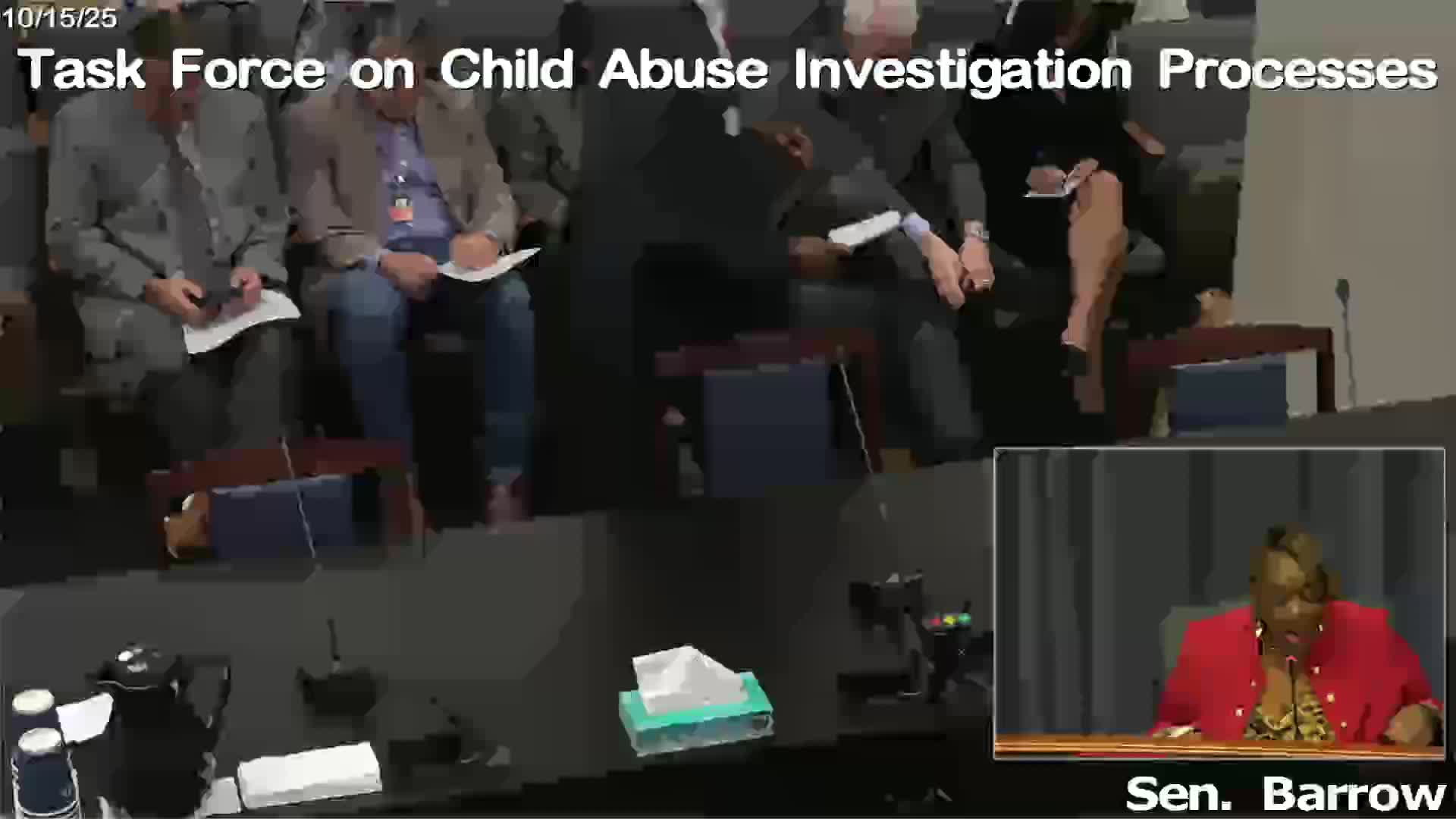Judges, advocates urge more training, funding and clearer evidence rules in family-court child abuse cases
Get AI-powered insights, summaries, and transcripts
Subscribe
Summary
Retired and sitting judges, legal advocates and child-welfare experts told a legislative task force that Louisiana family courts need more training, statewide access to court-appointed attorneys and mental-health evaluators, and clearer evidentiary standards to resolve custody cases with abuse allegations.
Baton Rouge — Judges, former judges, child-advocacy groups and mental-health professionals told the legislative Task Force on Child Abuse Investigation Processes on Oct. 16 that Louisiana’s family-court system needs more training, stable funding for custody evaluators and attorneys for children, and clearer rules about what evidence family judges may consider in abuse-related custody disputes.
The testimony came after the task force released a survey showing 23 judges responded and that “about 70%” of respondents reported having some specialized training, “less than 10%” described their training as extensive, and “more than 30%” reported no specialized training, a pattern task force members called worrying.
Retired Judge Guy Holdridge, who spent 24 years on the 23rd Judicial District and later served on the Court of Appeal, told the panel “the judicial system that we use is flawed,” describing routine family-court hearings where judges must make high-stakes credibility calls with limited resources and often no neutral evaluator. “How could we help? Of course, if the legislature could pass that every child that it says is a sexual or physical abuse gets an attorney, I mean, that would help,” Holdridge said.
Dean Madeline Landrieu of Loyola University College of Law, speaking as a retired judge and trainer, urged expansion of collaborative divorce and mediation tools for families with resources while emphasizing that judges need better access to mental-health evaluators and training to assess trauma and child development. “What we know is that kids want to be with their parents, even their parents that are less than perfect,” she said, arguing that evaluators can help preserve safer parent–child relationships when possible.
Kelly Balfour, now on the First Circuit Court of Appeal and a former trial judge, told the task force that the local funding arrangement for district courts produces major disparities. “Our district courts are funded at the local level,” Balfour said, noting that judicial expense funds (generated by local filing fees and fines) vary widely and some rural parishes lack money for even basic training or to hire evaluators.
Advocates from Court Appointed Special Advocates (CASA) and attorneys working with child victims described pilot ideas for expanding CASA involvement in high-conflict family-court cases. CASA’s Louisiana state director said the organization receives “two to three calls a month” asking for CASA volunteers in family-court matters but reminded the panel that CASA’s legal authority is currently limited to juvenile (CINC) cases.
Multiple witnesses urged the task force to tighten the relaxed evidentiary approach currently used in many family-court proceedings. Several panelists and outside attorneys said Code of Evidence provisions that allow “relaxed” evidentiary standards in family matters have produced inconsistent rulings across jurisdictions and make it harder for appellate courts to review factual findings.
Attorney Richard DeCote, who has practiced in child-abuse and family matters across Louisiana, urged that ‘‘rules of evidence are put into place so that only reliable evidence comes in and that is what allows the courts to make accurate factual determinations.’’ DeCote also cited state statutes that allow courts to appoint attorneys for children in abuse cases and urged judges to use that authority more consistently.
Task force members repeatedly flagged the mismatch between the timeline of agency investigations (DCFS, law enforcement) and family-court dockets, and the lack of routine information-sharing. Witnesses said it is possible for a family-court hearing to proceed while a DCFS investigation is underway in another office, or vice versa, complicating judges’ ability to weigh relevant findings. Several judges suggested practical steps: a clerk intake cover sheet to note open DCFS investigations, bench cards with checklist questions about other agency involvement, and state-level guidance to allow in-camera or limited disclosure of confidential investigative materials when necessary to protect children.
No formal actions or votes were taken by the task force at the Oct. 16 hearing. Senators and task force staff said they will seek additional information from the Supreme Court and the Judicial College about how many judges hear family matters statewide and the levels of specialized training they have received. Senator Barrow said the task force will compile a legislative packet addressing funding, training and evidence standards for the upcoming session.
What the panel did not decide: whether to require court-appointed counsel for every allegation or to create a statewide fund to pay for mental-health custody evaluators. Panelists offered models — including state grants, VAWA funds, and private foundation support — but emphasized no single funding stream currently covers all needs in every parish.
The task force will meet next on Nov. 12 on a panel that will focus on law enforcement, schools and information-technology options for cross-agency information sharing.
Ending note: Panelists emphasized that family-court decisions are fundamentally fact-driven and that improving the reliability of information — through training, consistent rules of evidence, access to court-appointed evaluators and attorneys for children, and better cross-agency communication — is essential to protecting children’s safety while preserving fairness for parents.
